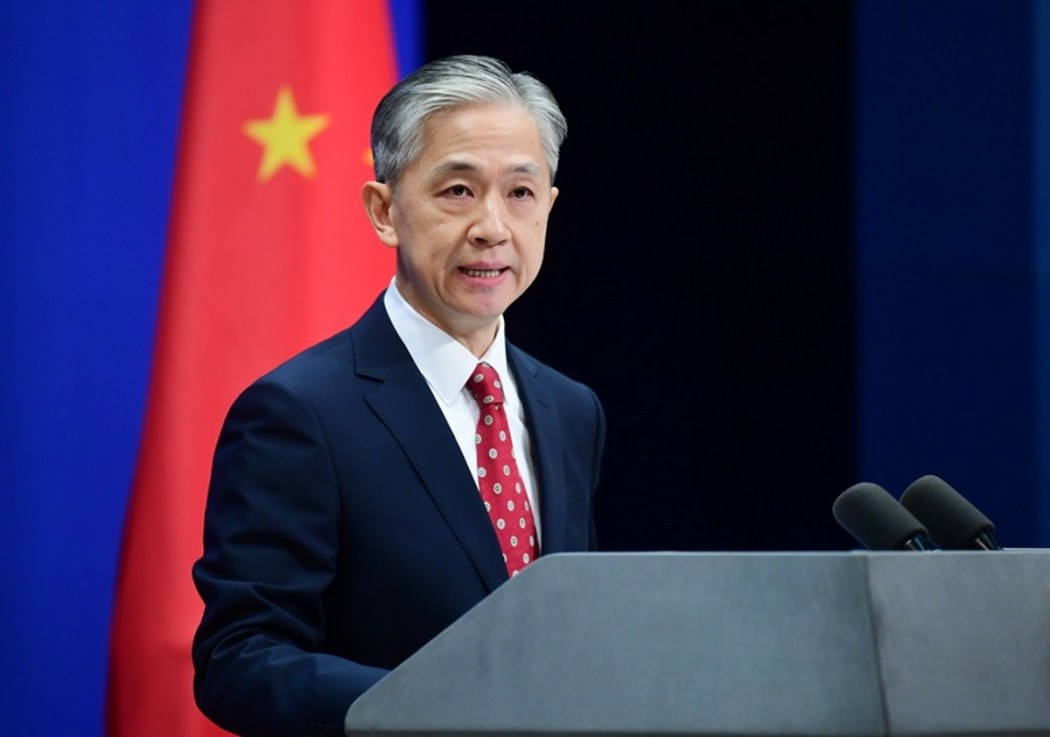By Alice Philipson
China’s President Xi Jinping arrived in Vietnam Tuesday for his first visit in six years, as he seeks to counter the United States’ growing influence with the communist nation.

Xi will meet the leader of Vietnam’s ruling Communist Party, Nguyen Phu Trong, after Hanoi upgraded diplomatic ties with Washington when US President Joe Biden visited in September.
Biden’s visit was part of US efforts around the world to contain China’s rising economic power — and to secure supplies of crucial materials needed for high-tech manufacturing.
Vietnam has long pursued a “bamboo diplomacy” approach, striving to stay on good terms with both powers.
It shares US concerns about Beijing’s increasing assertiveness in the contested South China Sea, but it also has close economic ties with China, while both countries have ruling communist parties.
Vietnam and China already share a “comprehensive strategic partnership”, Vietnam’s highest diplomatic status. Hanoi and Washington upgraded their relationship to the same level in September.

Chinese foreign ministry spokesman Wang Wenbin said that the visit would involve discussions on “bringing China-Vietnam relations to a higher position”.
That could see Xi push for Vietnam to join his “Community of Common Destiny”, a loosely defined phrase that refers to a vision of future cooperation on economic, security and political issues.
In an article published Tuesday in Vietnam’s Nhan Dan newspaper, Xi said that “Asia’s future is in the hands of no one but Asians”.
Wang said the agenda for Xi’s trip includes “politics, security, practical cooperation, the formation of public opinion, multilateral issues and maritime issues”.
On Tuesday, Chinese and Vietnamese flags lined the route that Xi will travel from the airport into central Hanoi.
Dozens of well-wishers waving Chinese and Vietnamese flags gathered outside the hotel where Xi is expected to stay.

On Wednesday, Xi will hold talks with Vietnamese Prime Minister Pham Minh Chinh and President Vo Van Thuong and will lay a wreath at the mausoleum of revolutionary leader Ho Chi Minh.
The trip comes with tensions running high between China and the Philippines in the South China Sea, after confrontations between the countries’ vessels at flashpoint reefs.
The Philippines said it had summoned China’s envoy on Monday and flagged the possibility of expelling him.
Vietnam, along with Malaysia, Brunei and Taiwan, also have overlapping claims in the South China Sea.
China has over the past decade expanded land reclamation in the South China Sea, creating militarised islands, with runways, ports and radar systems.
During Biden’s visit, Vietnam and the United States jointly warned against the “threat or use of force” in the South China Sea.
And Vietnam was one of several ASEAN members upset by a new official Chinese map published in September, showing sovereignty over almost the entire resource-rich waterway.
Analysts say that, like Biden in September, Xi may seek closer cooperation on rare earth minerals used in the manufacture of high-tech devices such as smartphones and electric car batteries.
Vietnamese state-controlled media reported last month that China Rare Earth Group Co. was looking for opportunities to work with Vietnam’s mining giant Vinacomin.
The United States and Vietnam in September agreed to cooperate to help Hanoi quantify and develop its rare earth resources.
Their new partnership also included an agreement on semiconductors, as fears about US reliance on China for strategic resources grow.
US chip giant Nvidia said Sunday it wants to set up a base in Vietnam to develop its semiconductor industry, according to the Vietnamese government.
Dateline:
Hanoi, Vietnam
Type of Story: News Service
Produced externally by an organization we trust to adhere to high journalistic standards.
Support HKFP | Policies & Ethics | Error/typo? | Contact Us | Newsletter | Transparency & Annual Report | Apps
Help safeguard press freedom & keep HKFP free for all readers by supporting our team

LATEST FROM HKFP
HKFP has an impartial stance, transparent funding, and balanced coverage guided by an Ethics Code and Corrections Policy.
Support press freedom & help us surpass 1,000 monthly Patrons: 100% independent, governed by an ethics code & not-for-profit.










